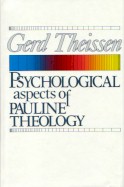|
|
Classic Reprints and Out-of-Print |
|
Reprint Spotlight: The Life of Jesus Jesus'
Proclamation of
- Select new &
used Contact Information:
More detailed information may be found in the Order Information section. |
by Gerd Theissen
 |
List Price: Cloth - 433 pp Summary Editorial Review More than anyone in recent decades, Gerd Theissen has directed New Testament scholarship toward the broader intellectual, interpretive cultures of our day. Using sociology, biological (the theory of evolution), and now psychological methodologies, Theissen is rescuing the study of biblical literature from the dangers of a back-water mentality. Even in his use of psychology, he is boldly eclectic, assessing the usefulness of three psychological approaches - he calls them learning, psychodynamic, and cognitive theories - for a deeper understanding of selected Pauline texts. That is, Theissen's approach remains exegetical and deals with that Paul intends to say through his writing. Whether or not one agrees with everything the author claims, his suggestions are always provocative of new, and perhaps deeper, insights into familiar passages. An exciting book! Robin Scroggs |
Contact Information (See also Order Information to place orders)
E-Mail: siglerpr@sunlink.net
Sigler Press
9 Sycamore Drive
Mifflintown, PA 17059
USA
Phone/Fax: (570)389-8223
Maintained by Jason T. Lamoreaux
jtdlam@earthlink.net
|
|
